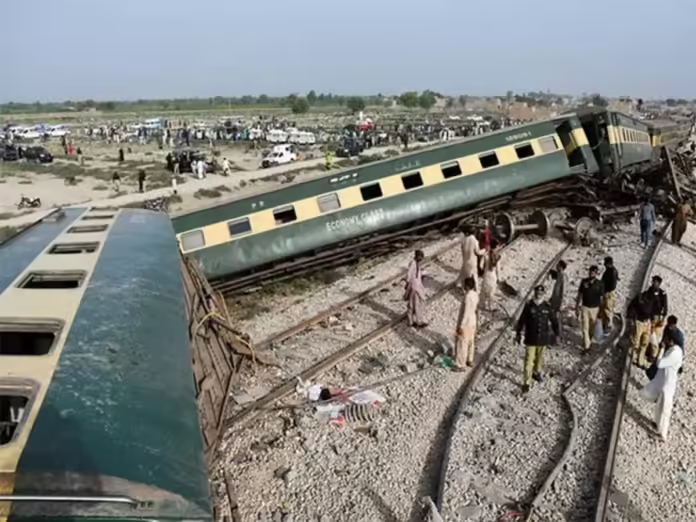An Ordinary Trip Becomes a Nightmare – Jaffar Express Blast in Balochistan has shaken the passengers very badly!
What started out as a routine trip for over 270 passengers on the Jaffar Express soon turned into a nightmare. The passenger train traveling from Peshawar to Quetta was shaken by a fatal blast in Spezand in Balochistan Mastung district. The lethal explosion ripped apart the railway track, knocking off six bogies and causing shockwaves within the filled carriages with men, women, and children.
For passengers on board, the sudden mayhem was unthinkable. The screaming of deformed metal, the violent lurch of shattered bogies, and the screams of wounded passengers described a terrifying picture of terror and disorientation.
Injuries and Immediate Rescue Efforts
At least four of the passengers were injured, with some hurt badly enough to need immediate medical attention. Rescue teams quickly arrived at the scene, extricating survivors from the wrecked bogies and giving them first aid. Ambulances took the injured to hospitals in the area, as frightened passengers rushed to safety.
Security personnel immediately cordoned off the area where the blast took place, securing further safety and initiating a search operation in the area. Their response prevented further casualties and comforted the traumatized survivors that assistance had reached them.
Targeting Pakistan’s Railway Lifeline
This assault is not unique. The railway network in Balochistan has become a focus of militant activity, putting not just public security at risk but also Pakistan’s overall connectivity at stake. Trains such as the Jaffar Express are lifelines for people—connecting cities, facilitating trade, and allowing people to travel affordably.
By targeting these corridors, militants seek to interfere with civilian life and instill fear. The train, long regarded as the “heartbeat of national movement,” has now evolved as a frontline in the war against militancy.
Human Stories Amid the Rubble
Aside from numbers and news headlines, this disaster has very human stories of tragedy. For one family heading to Quetta, the festive excitement of a reunion with family members became trauma as they extracted their children from derailed bogies. A young student heading to sit for exams held his broken arm but thanked destiny for keeping him alive. Such individual experiences capture the vulnerability of common Pakistanis who turn into victims of armed conflicts by default.
Authorities Vow Inquiry and Accountability
Authorities have assured that an inquiry is already in progress to identify the attackers and their intentions. The railway authorities have also vowed to improve monitoring and increase track security along vulnerable areas. But questions still linger—how long can Pakistan’s train commuters tolerate living with the threat of such attacks?
The accident emphasizes the imperative necessity of enhanced security measures, investment in state-of-the-art surveillance equipment, and quick response strategies to protect all those who rely on rail transport.
A Wake-Up Call for National Unity
The Mastung blast is not merely an assault on a train—it is an assault on the feeling of safety of all Pakistani travelers. It is a stark reminder that militancy survives and succeeds by preying on vulnerabilities, and it’s not just the government’s responsibility to safeguard national infrastructure but a cause for all.
As victims of the Jaffar Express struggle to overcome their wounds and trauma, their strength represents Pakistan’s resilience in overcoming repeated obstacles. The accident needs to be a reminder, compelling authorities and communities as well as schools and schools’ administrations, to rally behind one another against those who want to sabotage peace.
Follow Pakistan Updates for more updates and news.




